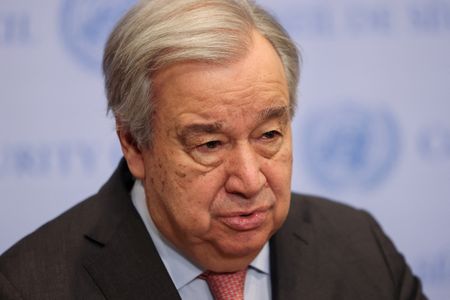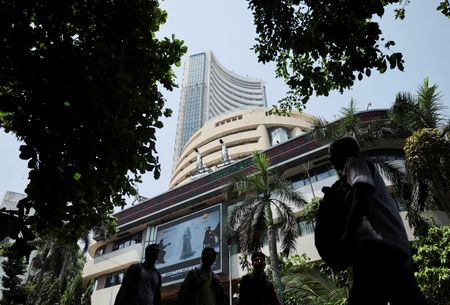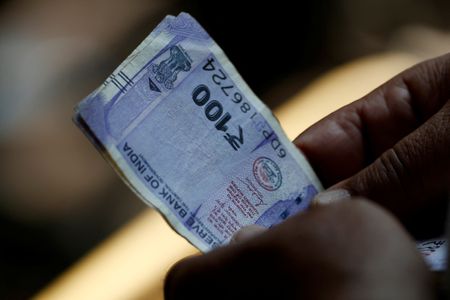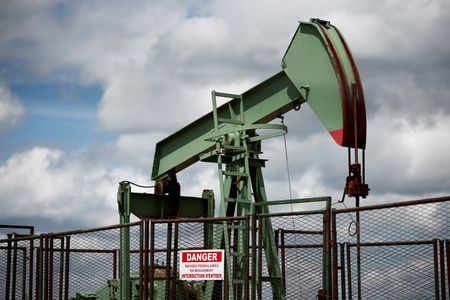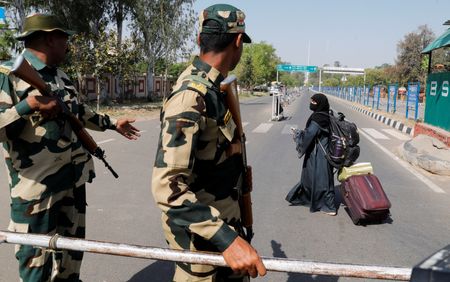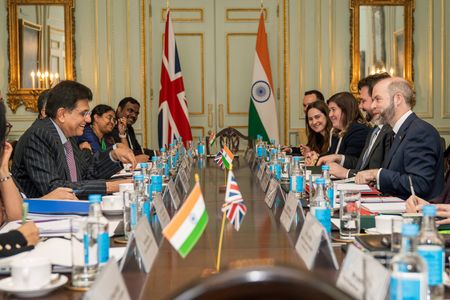By Asif Shahzad and Shivam Patel
MUZAFFARABAD, Pakistan/NEW DELHI (Reuters) – India attacked Pakistan and Pakistani Kashmir on Wednesday and Pakistan said it had shot down five Indian fighter jets in the worst fighting in more than two decades between the nuclear-armed enemies.
India said it struck nine Pakistani “terrorist infrastructure” sites, some of them linked to an attack by Islamist militants on Hindu tourists that killed 26 people in Indian Kashmir last month. Islamabad said six Pakistani locations were targeted, with eight people killed.
Indian forces attacked the headquarters of Islamist militant groups Jaish-e-Mohammed and Lashkar-e-Taiba, an Indian defence source told Reuters.
“India has demonstrated considerable restraint in selection of targets and method of execution,” the Indian defence ministry said in a statement.
Pakistan said Indian missiles hit three sites and a military spokesperson told Reuters five Indian aircraft had been shot down, a claim not confirmed by India.
“All of these engagements have been done as a defensive measure,” military spokesperson Ahmed Sharif Chaudhry said. “Pakistan remains a very responsible state. However, we will take all the steps necessary for defending the honour, integrity and sovereignty of Pakistan, at all cost.”
Islamabad called the assault a “blatant act of war” and said it had informed the U.N. Security Council that Pakistan reserved the right to respond appropriately to Indian aggression.
The nuclear-armed South Asian neighbours also exchanged intense shelling and heavy gunfire across much of their de facto border in the Himalayan region of Kashmir, police and witnesses told Reuters.
India and Pakistan have fought two wars since 1947 over Muslim-majority Kashmir, which both sides claim in full and control in part.
Since a 2003 ceasefire, to which both countries recommitted in 2021, targeted strikes between the neighbours are extremely rare, especially Indian strikes on Pakistani areas outside Pakistani Kashmir.
But analysts said the risk of escalation is higher than in the recent past due to the severity of India’s attack, which New Delhi called “Operation Sindoor”.
U.S. President Donald Trump called the situation “a shame” and added, “I hope it ends quickly.”
U.N. Secretary-General Antonio Guterres called for maximum military restraint from both countries, a spokesperson said.
SMOKE, FIRE
A Pakistani military spokesperson said eight people had been killed in the Indian strikes, 35 were injured and two were missing.
The Pakistani army’s shelling across the frontier in Kashmir killed three civilians, the Indian army said.
Indian TV channels showed videos of explosions, fire, large plumes of smoke in the night sky and people fleeing in several places in Pakistan and Pakistani Kashmir. Reuters could not independently verify the footage.
Pakistani Prime Minister Shehbaz Sharif said Islamabad was responding to the Indian attacks but did not provide details. Pakistan’s populous province of Punjab declared an emergency, its chief minister said, and hospitals and emergency services were on high alert.
A Pakistani military spokesperson told broadcaster Geo that two mosques were among the sites hit by India. The Pakistani defence minister told Geo that all the sites were civilian and not militant camps.
He said India’s claim of targeting “camps of terrorists is false”.
After India’s strikes, the Indian army said in a post on X on Wednesday: “Justice is served.”
STOCK FUTURES, AIRLINES IMPACTED
A spokesperson for the Indian Embassy in Washington told Reuters that evidence pointed “towards the clear involvement of Pakistan-based terrorists in this terror attack,” referring to the April tourist killings.
India said two of three suspects in that attack were Pakistani nationals but had not detailed its evidence. Pakistan denied that it had anything to do with the April killings.
News of the strikes impacted Indian stock futures mildly, with the GIFT NIFTY at 24,311, 0.3% below the NIFTY 50’s last close of 24,379.6 on Tuesday.
Several airlines including India’s largest airline, IndiGo, Air India and Qatar Airways canceled flights in areas of India and Pakistan due to closures of airports and airspace
Indian National Security Advisor Ajit Doval spoke to U.S. Secretary of State Marco Rubio and other senior Indian officials briefed counterparts in Britain, Russia, Saudi Arabia and the United Arab Emirates, an Indian source told Reuters.
The Indian strike goes far beyond New Delhi’s response to previous attacks in Kashmir blamed on Pakistan. Those include India’s 2019 air strike on Pakistan after 40 Indian paramilitary police were killed in Kashmir and India’s retaliation for the deaths of 18 soldiers in 2016.
“Given the scale of the Indian strike, which was far greater than what we saw in 2019, we can expect a sizable Pakistani response,” said Michael Kugelman, a Washington-based South Asia analyst and writer for the Foreign Policy magazine.
“All eyes will be on India’s next move. We’ve had a strike and a counter strike, and what comes next will be the strongest indication of just how serious a crisis this could become,” he said.
(Reporting by Asif Shahzad, Gibran Peshimam, Saeed Shah, Ariba Shahid in Pakistan, Shivam Patel, Tanvi Mehta, Krishna Das in New Delhi, Fayaz Bukhari in Srinagar, and Tariq Maqbool in Muzaffarabad; Writing by YP Rajesh; Editing by Cynthia Osterman and Stephen Coates)






